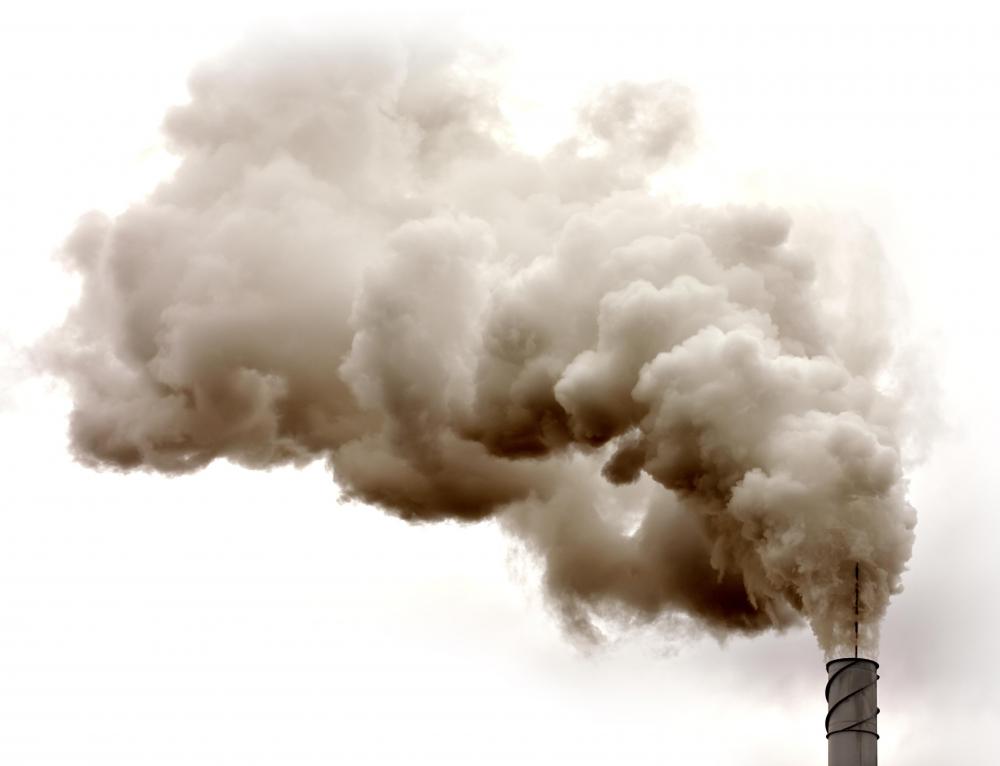At WiseGEEK, we're committed to delivering accurate, trustworthy information. Our expert-authored content is rigorously fact-checked and sourced from credible authorities. Discover how we uphold the highest standards in providing you with reliable knowledge.
Is Cap and Trade Effective?
Cap and trade, also known as emissions trading, is an environmental strategy that involves a government capping or limiting the total amount of greenhouse gases — particularly carbons — that companies can legally emit. If a company releases more greenhouses gases into the atmosphere than the cap allows for, that company can "trade" with companies that have produced fewer emissions, and purchase carbon credits or allocations. These credits are designed to give companies leeway so cutting emissions does not have to interfere with profitability and the free market system. Whether or not cap and trade is effective is a widely debated question, and most likely will be until conclusive, positive results can be demonstrated or until the idea can be conclusively disproved. There are, however, several pros and cons that politicians, economists, environmentalists, and other concerned individuals have put forth.
Emissions credits can be distributed in one of two general ways: through auction and through government-issued permits. Auctions are designed to reward environmental efficiency and innovation. With the cap and trade system, companies that have reduced their emissions and are under the cap can auction off the legal right to utilize their unused emissions — and then keep the profits. Government-issued permits are essentially free emissions credits that governments can give to companies at their discretion.

Proponents of cap and trade argue that it is an efficient method for cutting greenhouse emissions. Opponents of the system, however, put forth the counterargument that cap and trade will not lower overall emissions, and emission levels will actually become stagnant. This is because the largest companies — who often are also the largest polluters — can simply purchase emission credits and continue emitting greenhouse gases at the levels they are accustomed to.
Another contention of cap and trade proponents is that the system is flexible and does not interfere with profit making and the free market system. Opponents argue that it does interfere, by allowing investment bankers to make commissions off of the emissions credit market. Also, opponents argue that government-issued credits are essentially monetary handouts, and, while they will likely help increase a company's profitability, they in no way will encourage companies to lower their emissions.
One suggested alternative to the cap and trade system is to have governments issue a tax on carbon emissions. This would theoretically force companies to lower emissions, since purchasing the right to pollute more would not be an option. The tax money generated could then go to developing sustainable energy and other environmental projects. Cap and trade proponents argue that a carbon emissions tax would not work, however, since the wealthiest companies can easily afford the tax and would continue polluting as usual.
AS FEATURED ON:
AS FEATURED ON:











Discussion Comments
Your ignorance is astounding. Globally, 2010 was the hottest year on record, much of it (the amount is debated) caused by carbon emissions. You can disagree that cap and trade is effective, but when you question the environmental implications of climate change, you lose all credibility. And your anti-Obama comments show your Republican bias.
Idiocy. We now know that global warming is bunk. So any scheme to ameliorate it is a scam.
In addition, the figures for permissible carbon emissions for each business will be arbitrary. And political.
If Obama likes you, you'll get a high cap. You can emit carbon. Or sell carbon credits as your reward. If he doesn't like you you'll get a low cap. You can go out of business or buy "credits" from the favored few.
Just as there are farmers whose crop is to not grow corn, there will be factories whose product is to not manufacture anything. Just sell their carbon credits to those not favored by Obama.
Post your comments